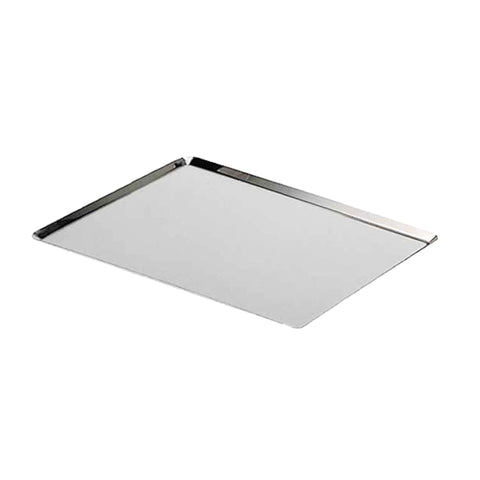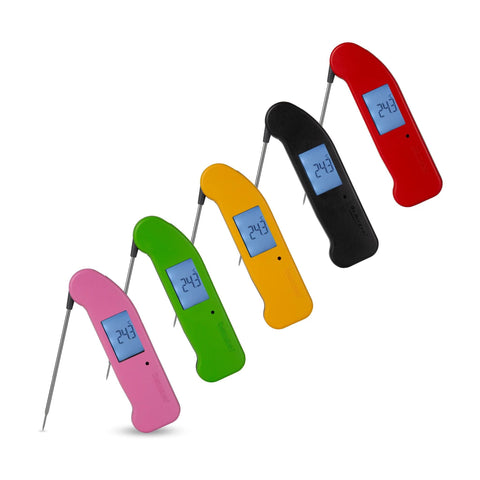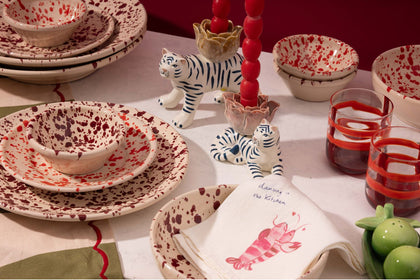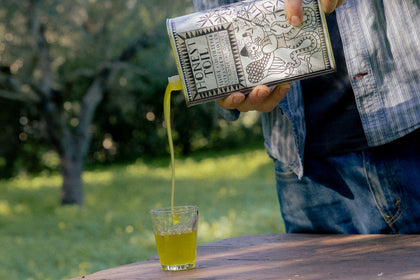How to Make Bread
by Holly Thomson

Making your own bread is an incredibly rewarding process. Kneading dough is a tactile, physical (and therapeutic) process; you get to fill the kitchen with gorgeous smells of warm bread; and you are rewarded with a beautiful loaf at the end of your efforts!
Find all the baking equipment and bread-making ingredients you need at Sous Chef, in our bread making category and collection of baking ingredients.
Once you get the hang of essential baking techniques, you can experiment with different bread making recipes from around the world – from simple Middle Eastern flatbread recipes to Jewish challah bread, or sourdough recipes and Venezualan breakfast arepas.
MORE: Shop all baking supplies hereWhat are the ingredients to make bread?
The simplest forms of bread are made with just flour and water – these include flatbreads such as pitta bread or Indian chapati breads. However all risen loaves require a raising agent such as yeast or baking soda. Some doughs will be enriched even further with eggs, such as brioche. Eggs act as both a raising agent and add rich flavour, thanks to the fat content in the yolks.
Here are the essential ingredients, most commonly used to make bread:
Choose a strong white flour with high gluten content for a white bloomer loaf, or you can use lower gluten flours such as rye and teff flour for denser, darker breads.
- Water
Water is needed to transform the flour into a dough.
The most common raising agent in bread is yeast. This living organism can be dried or fresh. It reacts with the sugar in flour and forms a gas, which gives loaves their airy texture.
Baking soda, also known as bicarbonate of soda is another raising agent, which creates bubbles in the dough and causes it to rise. It is the raising agent used in Irish soda bread.
- Eggs
Eggs are used to enrich bread doughs, and are often included in sweet breads such as brioche because of the extra fat content which gives dough a richer flavour.

How is bread made, step-by-step?
These are the simple steps for a simple white loaf.
- Combine flour with dried yeast and a little salt in a large bowl. A typical ratio would be 500g flour, to 5g-7g dried yeast and 10g salt.
- Add water slowly and combine everything into a sticky dough. For the above ratio use 300g water.
- Knead the dough until it develops a smooth, satin-like finish and bounces back to the touch.
- Prove the dough. Put it in a bowl, covered in a tea towel and leave it somewhere warm until it has doubled in size - usually around 1 hour. This first proving is when the flavour develops in your dough. You can prove the bread more slowly by leaving it in the fridge, which will give your bread a more pronounced flavour.
- Once risen, knock back the dough and gently mould it into your baking tin. Or shape it into a boule and score with a cross, then place on the baking tray.
- Cover and leave your dough to prove for a second time. Again this is usually for another hour. This is when the structure of your bread develops – the second rise will give your bread its bounce and air bubbles.
- Once risen again, carefully place the bread in a hot oven without knocking the tins or letting the dough collapse.
- Bake for 45-60 minutes until the bread is golden brown, risen. It should make a hollow sound when you tip it out and knock on the base - then you know it is done. If the bread browns too quickly just turn down the oven a little for the last 30 mins of cooking.
What do you need to make bread?
Here is our essential equipment list for baking your own bread at home:
For free-form loaves or flatbread and soda bread use a really good non-stick baking tray to guarantee your bake won’t stick. The De Buyer non-stick baking tray is everything you want from a baking tray. The non-stick coating is so good that you barely need to grease it and you don’t need fuss with greaseproof paper.
Essential for mixing all your dough ingredients, a metal mixing bowl is a good choice as it can go in the fridge if you’d like to slow-prove the bread. The De Buyer 24cm hemisphere mixing bowl has a silicone base for even more stable mixing.
Test if your bread is perfectly cooked right through to the middle with a precision thermometer. The Super-Fast Thermapen thermometer incorporates a large digital display with a precise read-out of temperature over the range of -49.9 to 299.9 °C with a 0.1 °C resolution and an accuracy of ±0.4 °C.
4 Easy Bread Recipes
This braided enriched bread recipe is made with eggs, which gives it a rich flavour and slightly yellow dough. It is beautifully glazed and finished with a scattering of black sesame seeds. Recipe from Caroline Eden’s book Black Sea, and is inspired by her time spent in Odessa.
Za'atar flatbreads, known as manoushi or man'oushe, are a popular street food, snack and side dish in Lebanon and Syria. People in Lebanon will often take their own homemade blend of za'atar and their own home-pressed olive oil to their local bakery. The baker will make flatbreads with what his customers give him, so each family will enjoy their own unique manoushi.
An arepa is a grilled cornflour or cornbread ‘bun’. They’re Venezuela’s everyday breakfast, and they’re becoming more and more popular in the street food scene all around the world.This classic bun is made with Harina PAN, a finely ground maize flour used widely across South America.
Find more baking and patisserie recipes here, or browse our bread making category for more products and equipment. Buy flour online here.








